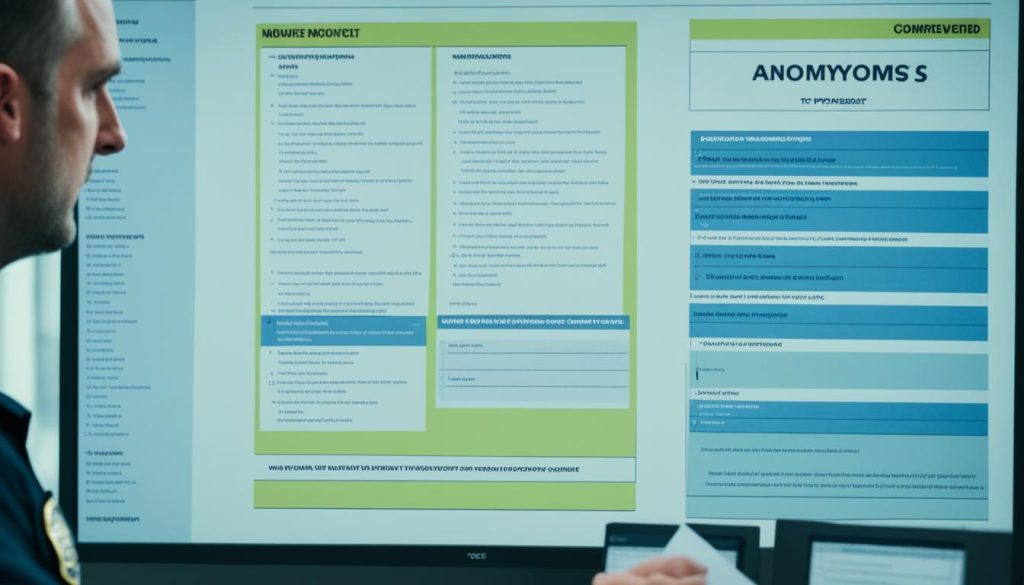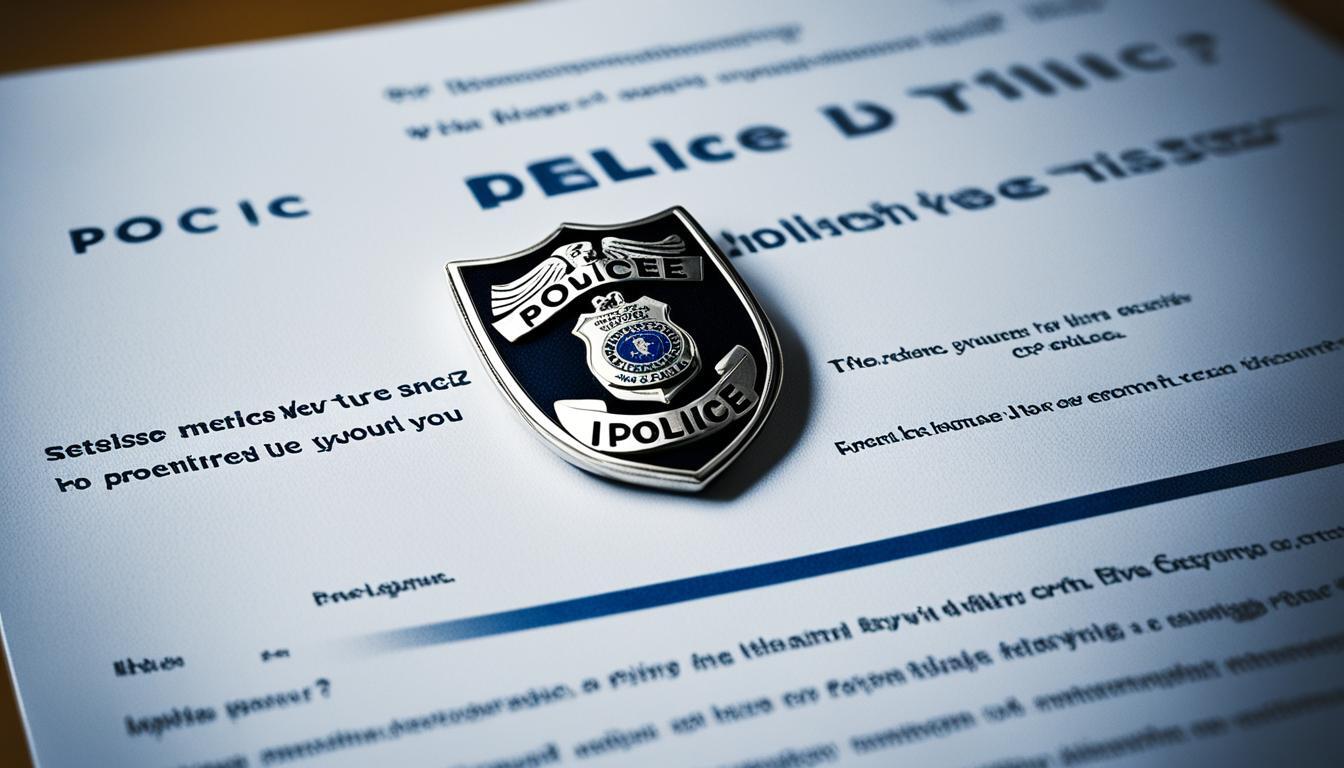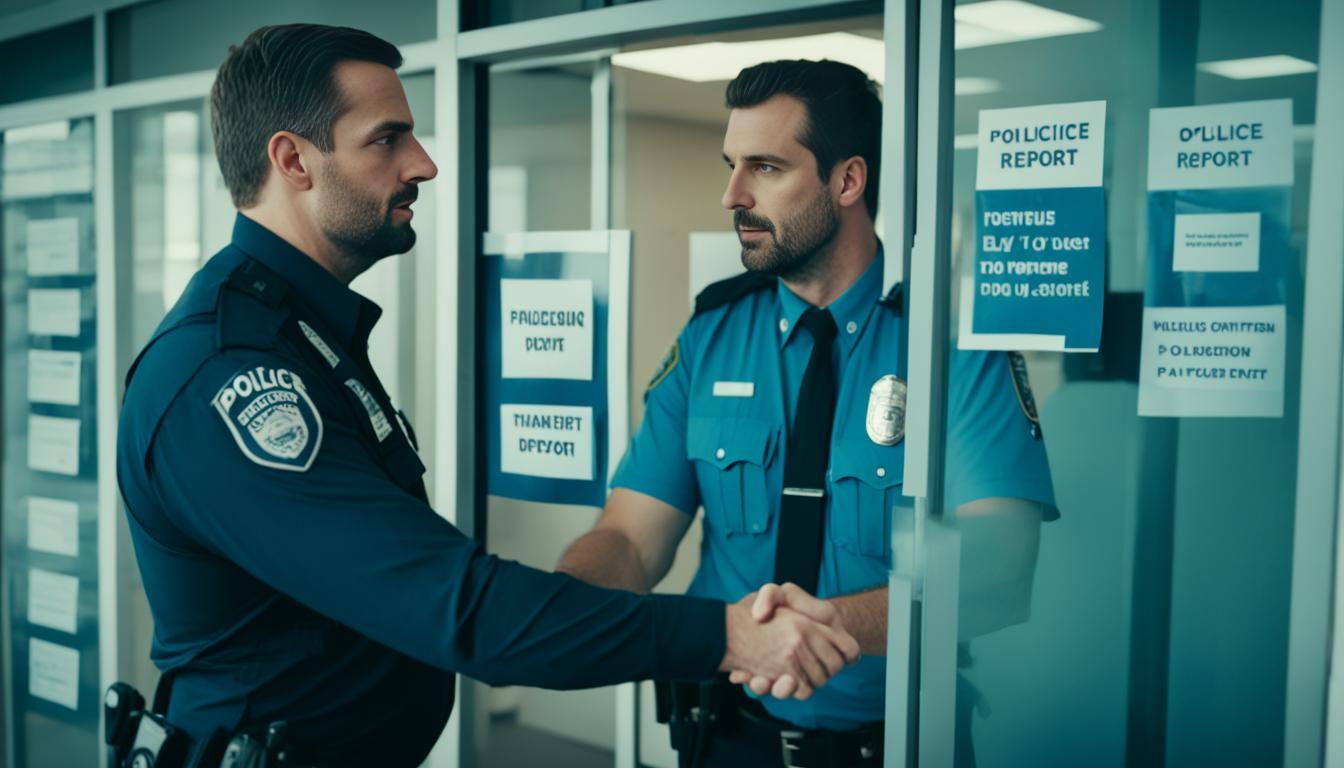Can Police Disclose Who Reported You? Find Out Here
Did you know that the police may have the power to reveal the identity of the person who reported you? It’s a surprising fact that can have significant implications for individuals involved in criminal cases. If you’re curious about whether the police can disclose this information and what factors come into play, keep reading to learn more.
Key Takeaways:
- The disclosure of the identity of the person who reported you depends on various factors, such as their role in the case and the need for protection.
- Anonymous reporting laws provide legal protections for individuals who choose to report crimes without revealing their identity.
- Being reported to the police can have serious consequences, including legal ramifications and potential impact on employment and educational prospects.
- If you are reported to the police, it is advisable to seek legal counsel and exercise your rights accordingly.
- The response time for the police to a report varies depending on the urgency of the matter and available resources.
When Can the Police Tell You Who Reported You?
In certain circumstances, the police may be able to tell you who reported you. If the reporter is a witness or victim in the case, the police may want to speak to them or offer them support. However, if the reporter is a confidential informant or a juvenile, the police may not disclose their identity in order to protect them. The police have a duty to make a “studied analysis” of the relevance of the information before disclosing it to the defense. It is important to understand that there are legal protections for anonymous sources, and the police may not always be able to disclose their identities.

Protecting Anonymous Sources
Protecting the identity of anonymous sources is crucial in maintaining their trust and encouraging others to come forward with information. Confidential informants play a significant role in assisting law enforcement agencies in solving crimes and providing valuable intelligence. By safeguarding their identities, the police help ensure their safety and maintain the effectiveness of their operations. Anonymous tip reporting allows individuals to provide vital information without fear of retaliation, ensuring the flow of crucial information to the police. It is essential for the justice system to respect and protect the anonymity of these sources to maintain public trust and encourage the reporting of valuable information.
Consequences of Being Reported to the Police
Being reported to the police can have serious consequences. If you are convicted of a crime, you may face jail time or fines. Additionally, having a criminal record can affect your employment prospects and educational opportunities. It is important to note that if you are reported for a crime you did not commit, you may have to go to court to prove your innocence, which can be a lengthy and expensive process. The confidentiality of crime reports can vary depending on the circumstances, but generally, they are not confidential and may be used as evidence in legal proceedings.
If you find yourself in a situation where you need to report a crime anonymously, it’s essential to be aware of the potential repercussions. While anonymity may protect your identity, the crime report itself may not remain confidential. It is crucial to weigh the potential benefits of reporting anonymously against the possible consequences and consider consulting with legal professionals or organizations that specialize in reporting crimes anonymously.

What to Do If You Are Reported to the Police
If you find yourself in a situation where you have been reported to the police, it is important to remain calm and remember your rights. The actions you take during this time can significantly impact the outcome of your case, so it is essential to handle the situation with care.
First and foremost, it is crucial not to speak to the police without consulting an attorney. Anything you say can be used against you, so it is best to exercise your right to remain silent until you have legal representation.
While it is important to cooperate with the police, you are not obligated to answer their questions. Remember that you have the right to consult with an attorney before providing any information.
Seeking legal counsel is of utmost importance in these situations. Consult with an attorney who specializes in criminal law to understand the implications of the police report and determine the best course of action. They can guide you through the legal process and help protect your rights.
When contacted by the police regarding a filed report, request a copy of your rights card. This document outlines your rights as a suspect, and it is crucial to have a clear understanding of them throughout the investigation.
It is also important to approach the situation with respect and understanding if you discover the identity of the person who reported you. Engaging in a civil conversation to address the issue amicably can help diffuse tension and potentially resolve the matter outside of legal proceedings.
In summary, if you are reported to the police, remember to:
- Remain calm and composed
- Consult with an attorney before speaking to the police
- Avoid making any statements that could be used against you
- Cooperate with the police while exercising your right to remain silent
- Seek legal counsel and understand your rights
- Approach the situation with respect and try to resolve the issue amicably
By following these steps, you can navigate the process effectively and ensure that your legal rights are protected.
Can You Remain Anonymous When Reporting to the Police?
When you report a crime to the police, you may have the option to remain anonymous. However, you may be required to provide your name and contact information for the police’s records. If you have concerns for your safety or the safety of others, you may request to remain anonymous. It is important to provide the police with as much information as possible about the incident to help their investigation. Each police report is treated on a case-by-case basis, and the police have protocols in place to protect the identity of anonymous reporters.
| Can You Remain Anonymous When Reporting to the Police? | Yes |
|---|---|
| Do You Have to Provide Your Name and Contact Information? | It may be required for police records |
| Can You Request to Remain Anonymous? | Yes, especially if safety concerns exist |
| How Much Information Should You Provide? | As much as possible to aid the investigation |
| Do Police Have Protocols to Protect Anonymous Reporters? | Yes, each report is treated individually |
- Remain Anonymous: When reporting a crime, you may decide to remain anonymous and not disclose your personal information, such as your name and contact details, to the police. However, it is essential to be aware that providing your identity may be mandatory for police records.
- Safety Concerns: In circumstances where you have concerns about your safety or the safety of others, you can request to remain anonymous. This ensures that your identity is protected while still providing vital information to assist with the investigation.
- Information Sharing: To aid the police in their investigation, it is crucial to provide as much detailed information as possible about the incident. The more information you provide, the more it can help the authorities solve the case.
- Protection of Anonymous Reporters: Police departments have specific protocols in place to safeguard the identity of anonymous reporters. Each police report is treated individually, and steps are taken to ensure the protection and confidentiality of the individuals who choose to remain anonymous.
How Long Does It Take for the Police to Respond to a Report?
The response time for the police to a report can vary depending on the situation and their workload. If someone files a police report against you, the response time will depend on the urgency of the matter and the availability of police resources. In non-emergency situations, it may take a few hours for the police to respond. However, if there is a high volume of crime in the area, it may take longer.
It is important to note that the police cannot officially disclose who filed a police report, but you can request information about the status of the report. If you are facing criminal charges, it is crucial to consult with an attorney to understand the legal process and how the police report may affect your case. They can provide you with guidance and support throughout the proceedings.
Remember, the response time can vary, and it is essential to remain patient and cooperate with the authorities. Keep in mind that divulging information about the person who filed the report is typically not permitted, as it could compromise the integrity of the investigation or put individuals at risk. Your focus should be on understanding the situation and working with legal professionals to navigate the process effectively.




















Post Comment Cancel reply